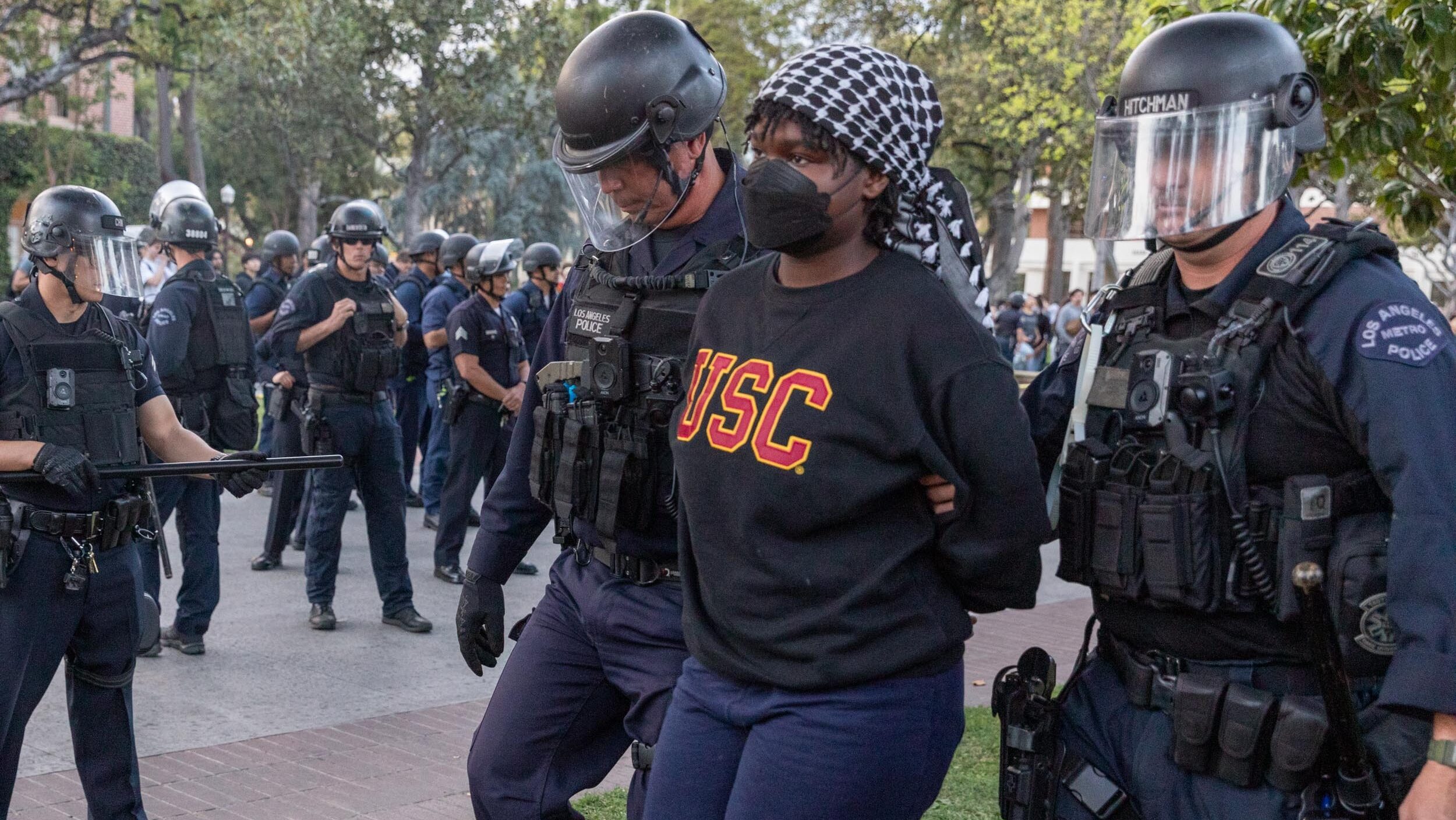Police Detain Dozens in Nationwide Anti-Israel University Protests
On Wednesday, a significant escalation was observed in the confrontations between police and student protesters at universities across the United States, including the University of Southern California (USC) and the University of Texas at Austin, amid ongoing protests against Israel.
At USC, tensions peaked early in the day, culminating in the evening with the detention of several dozen protesters who had formed a circle, locking arms in a peaceful demonstration. Despite earlier warnings from the police to disperse, the group was methodically detained without significant violence, while hundreds of onlookers and media helicopters observed from a distance.
This holiday season, give to:
Truth and understanding
The Media Line's intrepid correspondents are in Israel, Gaza, Lebanon, Syria and Pakistan providing first-person reporting.
They all said they cover it.
We see it.
We report with just one agenda: the truth.


The scene at the University of Texas, however, was marked by chaos when local and state police, including some on horseback, aggressively dispersed protesters, resulting in 34 arrests. This response came at the request of the university and was directly supported by Texas Governor Gregg Abbott, who emphatically stated on social media that the protesters should be jailed and possibly expelled.
The national response to these events has been mixed. While the White House reaffirmed President Joe Biden’s commitment to free speech and peaceful protest on college campuses, it also emphasized the need to condemn hate-filled and violent actions.
The protests, which are part of a wider reaction against the ongoing Israel-Hamas conflict, have also seen universities taking preemptive measures to manage unrest. For instance, Harvard University limited access to key areas and required permits for gatherings, while Columbia University engaged in extended negotiations with protesters to avoid enforcement actions.
Amid these national protests, students continue to demand that universities cut financial ties with Israel and divest from companies implicated in the conflict. This movement has prompted some campuses to increase security measures and, in some cases, resort to campus closures and the shifting of classes to virtual formats.

